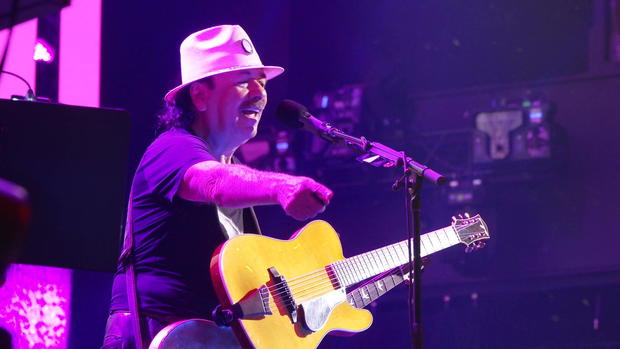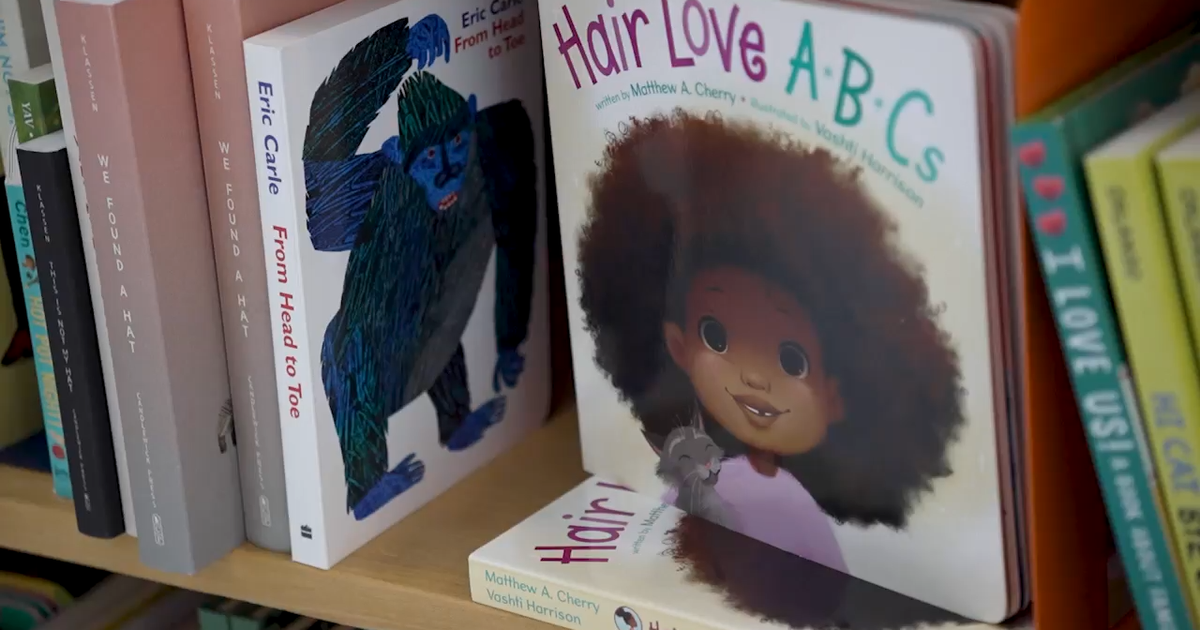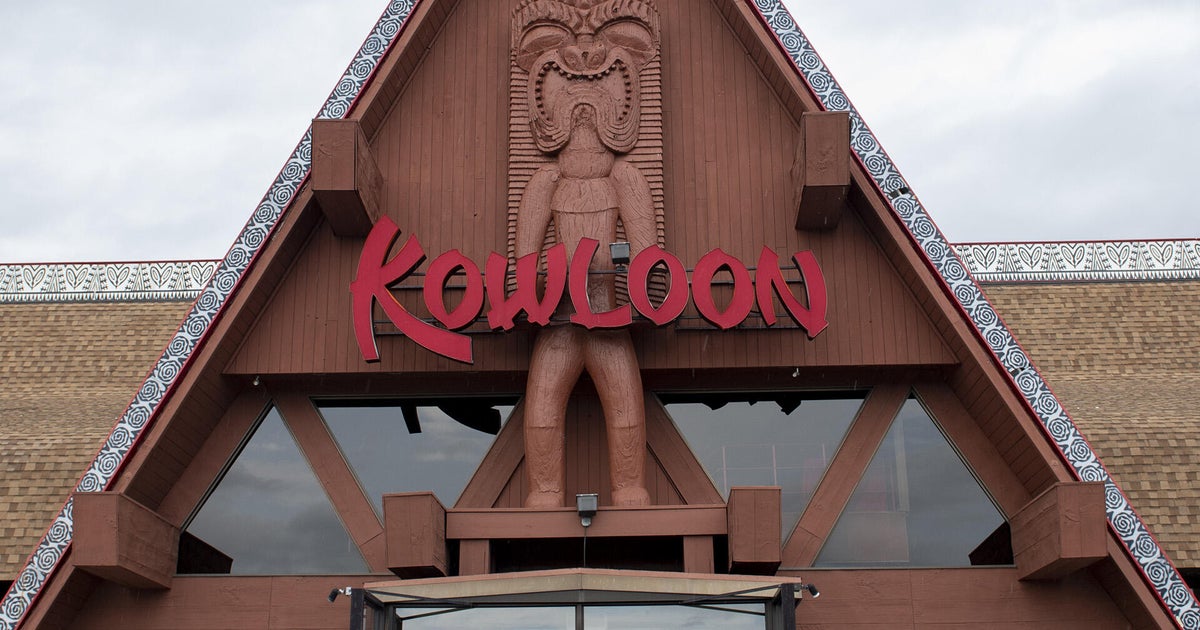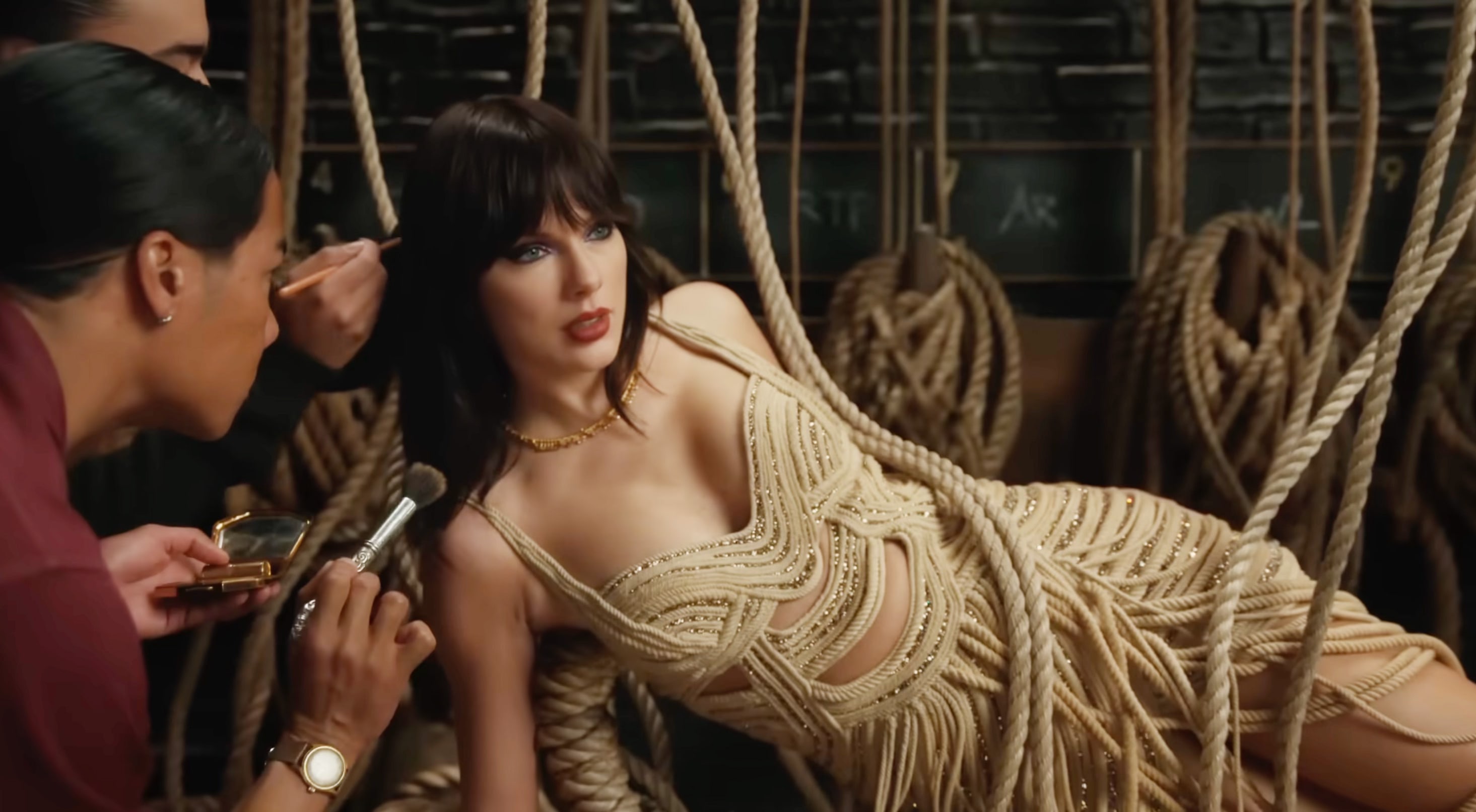The alchemy of Carlos Santana
For Carlos Santana, music is a kind of witchcraft, an alchemy that transforms his guitar into something you might think he's trying to tame. But taming it, he says, isn't the goal; seducing it is. "When you get inside the note, it's like the most beautiful woman in the room gives you a French kiss," he said. "When you get a French kiss, man, it always gets your attention."
He's been getting that kind of attention for decades, sustaining a long career like he can sustain a note. "I'm a multi-dimensional motherf****r who can show up on any stage and bring things to another whole level of energy," he said.
He was 22 when he blew away fans at Woodstock, his solo announcing the arrival of another '60s guitar god.
At that time, Santana said, "Everybody was going home, putting on Bob Dylan records and smoking weed."
Cowan asked, "What do you think people do when they put on your music?"
"Make sex," he smiled.
Santana performs "Black Magic Woman":
At 52 he was still having that effect. His 1999 album "Supernatural" tied Michael Jackson for the most Grammys ever won in a single night. The song "Smooth" topped the charts for 12 weeks.
"In the middle of the song I felt like, 'Uh oh, this is different.' That one and 'Maria Maria.'"
It's the kind of life they make movies about, and Hollywood has certainly asked. But Santana has usually said no. "I'm going to own my life," he said. "I don't want to come to you to borrow my life so I can show it to someone else. This is what I want, or you can walk out."
But executive producers Ron Howard and Brian Grazer, with Imagine Documentaries, came to Santana with a different offer, one that allowed him to have a say. The result is "Carlos," which debuts this week.
To watch a trailer for "Carlos" click on the video player below:
It starts where he did, as a young boy in Mexico who began playing the violin with his dad's mariachi band. He switched to guitar, and when he was barely 13 he was playing it in the backstreet nightclubs of Tijuana, usually surrounded by strippers.
"When I first started working in there, it was like discovering the Cirque du soleil or something, only it was more fun!" he said. "I never seen anyone do …"
We'll stop that memory right there. It's clear adulthood came pretty fast. But in some cases adulthood was forced on him. One of Santana's earliest encounters with sexuality came at the hands of an abuser, a secret he first revealed to Rolling Stone back in 2000.
He said, "I wanted to come clean with that because at the time, there were a lot of people who were having that experience, and a lot of people dealt with suicide, stuff like that. A lot of people wrote letters like, 'Man, Carlos, thanks for saying that.' It did help a lot of people, psychologically, emotionally, and it was like good medicine, you know?"
"Did it help you, too?" Cowan asked.
"Oh, yes. I really let go of the experience and I stopped being so angry and so mean. It was just a natural way of cleansing the palate."
There was another cleansing he needed, too. Drugs, alcohol, and the rock 'n' roll lifestyle started to do what they do to most people. But unlike most people, Santana realized his music was suffering, so he began following an Indian guru who taught him meditation. "I cut my hair, dressed all in white, and just became a disciple," he said.
Cowan asked, "And did that spiritual high replace the high from drugs?"
"Oh yeah, because there's nothing higher than God."
That's not to say he doesn't stray from the path of peace. He came under fire after a concert in New Jersey this past July, when he seemed to target the trans and non-binary community. He told his audience, "A woman is a woman, and a man is a man. Whatever you wanna do in the closet, that's your business. I'm OK with that."
It stuck out, a rare thorn in his otherwise rosy message of spirituality and oneness.
Cowan asked, "What did you mean by that?"
"I didn't mean it to be offensive to anybody," Santana replied. "I'm not against anybody. I'm not trying to demean you, you know? I already know what's it's like to be discriminated as a child, being Mexican, so I don't want to put that on you or anybody. Be happy and have fun."
When "Sunday Morning" met up with him at the House of Blues at Mandalay Bay in Las Vegas, his focus was back on the music, and its purpose: "People everywhere, you know, need healing. And that's what we do."
This is the 11th year of his Las Vegas residency, and for all that time he's been playing to the beat of veteran drummer Cindy Blackman. She made a name for herself playing for a host of artists, including Lenny Kravitz. But in 2010 she joined Santana's band, and a few months later, she married him.
He proposed to her on stage during a show. "I did!" he said. "It was in Chicago. I remember her father was in the audience, you know?"
Blackman said, "We have our instruments with us all the time. We're living music, talking about music, breathing music. And if there's no music playing, it's playing up here, always."
Playing together, he said, has helped make this the most delicious part of his life, giving him renewed energy to create, and not just re-create. "I'm not interested in becoming a ghost on a jukebox, you know, and that's all I am," he said. "A ghost from the jukebox in the past? No. I want to be right now."
At 76, he hopes he's still on the popular pulse. Carlos Santana may have been shaped by his times, but through all those years he's also done his part to shape our times as well.
For more info:
- santana.com
- The documentary "Carlos" debuts in theaters September 23
- Santana at House of Blues, Mandalay Bay, Las Vegas
Story produced by John Goodwin. Editor: Steven Tyler.





